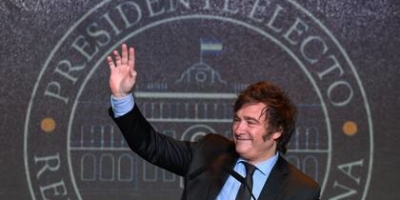Check out the latest news on laws and regulations.

President Milei Executive Order 70/23
Governing by Executive Order
President Javier Milei Introduces Sweeping Changes via Executive Order -Decree 70/23-. But Will Those Changes Survive?
True to his word, newly elected President Javier Milei wielded his executive pen Wednesday night in an attempt to leave an indelible mark on Argentina’s economic canvas. Executive Order 70/23 embodies Milei’s promise of swift action to reshape Argentina’s legal landscape. The following paragraphs provide brief answers to the several questions raised thus far.
Can the President Implement Reform by Presidential Decree - Executive Fiat - ?
Yes. President Milei declared an economic emergency, characterizing the country’s current situation as the “worst crisis in 100 years.”
Under this argument, he has opted to overhaul Argentina by executive decree, forsaking the more conventional path of seeking congressional action. Executive governance is nothing new in Argentina and the framework of Decretos de Necesidad y Urgencia (DNUs) have been used by many past administrations to implement swift reform or action.
The DNU was used most recently by the last administration to impose restrictions and relief during the COVID-19 pandemic. The Argentine Constitution expressly authorizes the executive branch to use the DNU in all cases of “necessity and urgency,” except for electoral or penal matters or taxes.
The presidential exercise of the DNU is not absolute. Milei’s executive action and the survival of Executive Order 70/23 depend on securing the approval of at least one of the houses of Congress. If neither the lower nor the upper house approves, the DNU will be void and without effect. Congress’s review and approval of a DNU is not fixed by law but expect at least two or three months before both houses cast their votes. In the meantime, the DNU is valid and may be relied upon by all persons.
The Case for Necessity and Urgency
President Milei has emphasized the urgency of the Argentine crisis. He asserts that immediate action is required, precluding discussions in Congress that could extend for months. There are also practical reasons at work, as Milei must expend his political capital and popular support quickly, especially given his legislative minority.
There are no constitutional or other express guidelines to define “necessity and urgency”. Argentine Supreme Court, in its previous examinations of executive power, has almost uniformly upheld the exercise of the DNU.
It is difficult to read too much into this, however, as Argentina’s highest court has historically allied itself with the executive and there are few instances of the Supreme Court curtailing the president’s use of the DNU.
What Does Executive Order 70/23 Do?
Wednesday’s executive order is an 89-page document that repeals or amends more than 300 laws, rules, or regulations. In general terms, the executive order endeavors to sharply pare down bureaucracy and to limit government involvement in the economy and in private affairs. The overarching themes are economic freedom and personal liberty.
While too numerous to list the full scope of the executive order, its main reforms are:
- Repeal of laws and regulations affecting domestic commerce. This includes a repeal of laws regulating product display in retail outlets (the so-called “shelf law”); a repeal of laws mandating domestic supply and suppressed pricing of products (e.g., meat, dairy, fuel);, and a repeal of laws requiring businesses and government to favor domestic products.
- Repeal of restrictions on the foreign ownership of rural land.
- Repeal of laws restricting the freedom of contract by private parties regarding residential and commercial property leases.
- The privatization of all state-owned companies.
- Deregulation of critical industries such as communication (including satellite communications), tourism, and airline travel.
- Modification of employment laws, allowing employers greater flexibility in hiring and termination, while reducing the costs of statutory severance payable upon termination; optative payment of union dues.
- Changes to consumer credit card regulations.
- Freedom to contract in foreign currency.
- Characterization of education and public transport as public services, thereby limiting the right to strike by persons working in those sectors.
WSC Legal will provide a closer examination of these and other topics affected by Executive Order 70/23 in ensuing communications.
What's next?
Executive Order 70/23 enters into effect on December 29. Thereafter, the president´s Chief of Staff has 10 days to submit the DNU to a bicameral congressional committee for review and consideration. The committee has 10 days to recommend approval or disapproval of the entirety of the executive order. Following the committee’s recommendation, both houses (Senate and House of Representatives) will be asked to vote on either accepting or rejecting the executive order. As with the committee’s recommendation, the vote is on the entirety of the DNU. If either house approves it, the executive order stands and has the “force of law.” Conversely, if both houses disapprove, the executive is voided.
Milei’s party is a minority in Congress and by no means is he assured control of congressional review. The approval of Executive Order 70/23 will depend on the president’s political savvy and his ability to cobble support from other political parties to secure necessary votes in at least one of the houses of Congress. While Milei’s cabinet reflects a coalition with former President Macri’s PRO party, which is expected to support the executive order, the congressional review will witness vehement opposition from other parties and their representatives.
Even if Executive Order 70/23 is approved by Congress, many of its provisions will face legal scrutiny and constitutional challenges. Whether and how much of the executive order will ultimately survive are questions yet to be answered. The process and eventual outcome will be a test of Argentina’s willingness to deregulate and undertake the pain (and promise) of radical economic reform.
Stay tuned…This Nantucket Sleigh Ride of Argentine politics is just getting started.
More information
If you would like to discuss this matter with the attorneys at Wiener Soto Caparros, please do not hesitate to contact our authors.
Disclaimer
This article is based on publicly available information and is for informational purposes only. It is not intended to provide legal advice or an exhaustive analysis of the issues it mentions.






